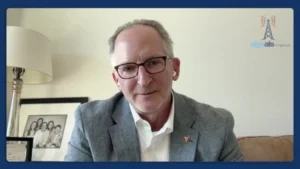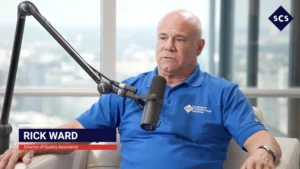With New Build America Buy America Guidance on Construction Materials, Contractors Should Be More Proactive with Compliance
Time to put America in the driver’s seat of infrastructure manufacturing. The Office of Management and Budget has proposed new rules on how to implement the Build America Buy America Act provisions. As part of the Biden administration’s attempt to boost domestic manufacturing and supply chains, this act requires construction materials on federal infrastructure projects to be made in the U.S.
The proposed guidance clarifies requirements and provides consistent government-wide guidance on how to price materials. It also dictates which products can be considered U.S.-made, and expands Buy America provisions to cover composite building materials and fiber-optic cable.
What do these updated guidelines to Build America Buy America mean for the construction industry? Will it make the supply chain shorter or increase the costs of projects? Reed Sellers, partner at industry-specific assurance, tax and consulting services company Wipfli, breaks down the two-part test for construction materials and highlights the exceptions to the rules, emphasizing the need for contractors to determine compliance early on.
Reed’s Thoughts:
“In his February 2023, State of the Union address, President Biden called out his plan for major infrastructure spending and to do so through Buy American. And on February 9th, the proposed rules for the Build America by America Act were released. A gross oversimplification of these rules is that all federally funded infrastructure projects contain a cost preference for substantially all materials which are domestically sourced. Whereas prior acts covered iron and steel the new listing of materials is just about all encompassing: including non-ferrous metals like copper, as well as plastics, glass, lumber, drywall, and fiber optic cabling. At the essence of this price, preference is a two-part test. First, construction materials need to be produced in the US. Secondly, for manufactured materials, greater than 55% of the total component costs need to be domestically sourced or incurred.
Finally, it’s worth calling out that this is for all federally funded infrastructure projects, not just those receiving funds as a direct result of the Infrastructure Act. So at least for now, this is the new normal.
There are some exceptions to these rules: first, in cases where it’s deemed cost-prohibitive, meaning it increases the cost of the project overall by more than 25%; and secondly, in cases where there quite simply isn’t enough domestic based source, neither ample quantity or satisfactory quality. Another exception arises when applying the preference would be inconsistent with public interest. This might be used when low cost is a priority, such as in affordable housing projects. Finally, Biden also called out being consistent with international trade rules, which may lay the groundwork for exceptions to key trade partners as well.
The single biggest takeaway from these proposed rules is that government contractors should begin to familiarize themselves with them now. Also an important step is going to be reaching out to key subcontractors and suppliers to make an initial determination of compliance or non-compliance.”
Article written by Azam Saghir.








